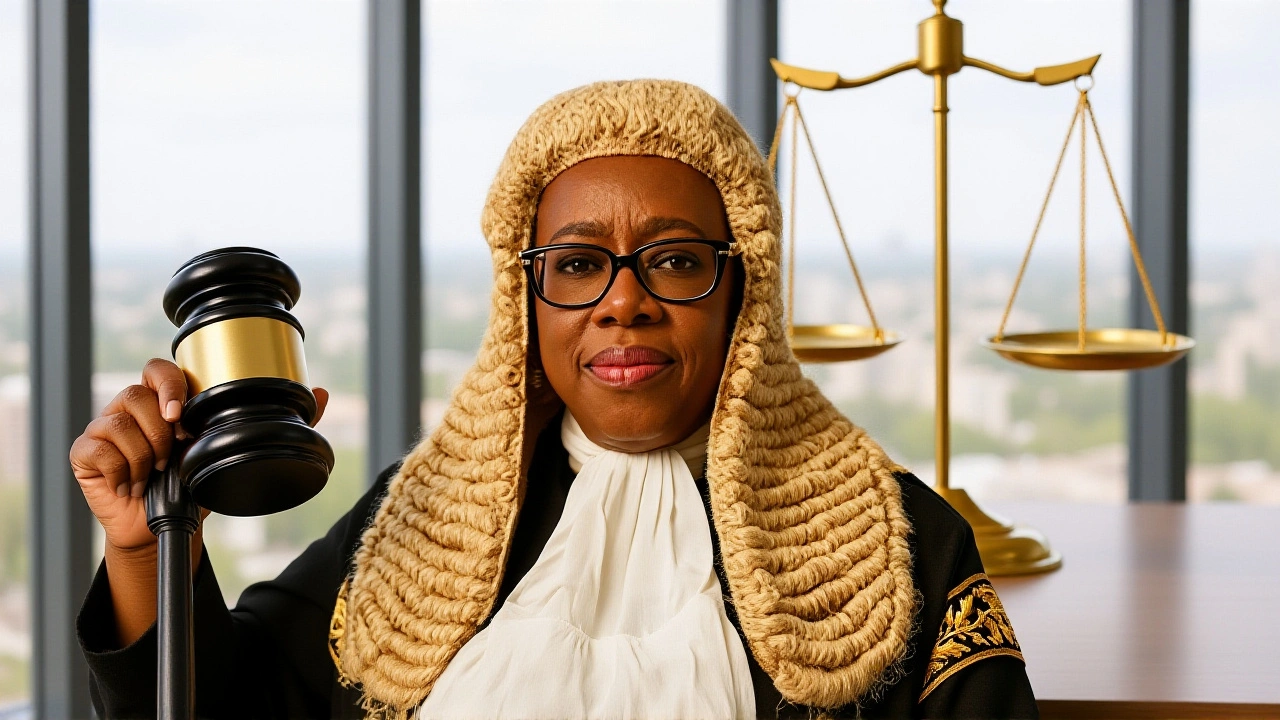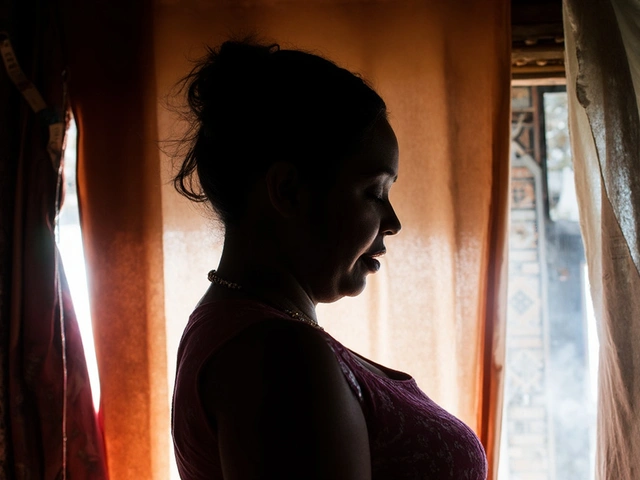When Justice Ijeoma Agugua took the oath on September 26, 2025, she didn’t just become Imo State’s Acting Chief Judge—she ended five months of judicial silence. The ceremony, held in the state capital Owerri, marked the quiet but monumental collapse of a power struggle between Governor Hope Uzodimma and the National Judicial Council (NJC), a conflict that left courts shuttered, cases unassigned, and public trust fraying. This wasn’t just about who gets to wear the robe. It was about whether the rule of law still meant anything in Imo State.
The Impasse That Stopped the Courts
The crisis began in April 2025, when Governor Uzodimma appointed T.N. Nzeukwu as Acting Chief Judge—a move the NJC swiftly rejected at its 109th meeting. The Council didn’t mince words: Section 271(3) of Nigeria’s Constitution is crystal clear. When the Chief Judge’s position is vacant, the most senior judge must step in. Justice Agugua, with over 18 years on the bench, was that judge. Nzeukwu, though experienced, wasn’t senior enough. The NJC repeated its stance in June, demanding Uzodimma reverse the appointment and even recommended Nzeukwu’s compulsory retirement for accepting an unconstitutional post. Meanwhile, the state’s High Court ground to a halt.
From April 30, 2025—when Nzeukwu officially stepped down—until September 26, no judge received a new case. Not one. Not for five months. Legal filings piled up. Defendants languished in detention without trial. Civil suits stalled. The Chief Registrar, caught between a governor who ignored the law and a judicial body that refused to bend, did nothing. The silence wasn’t just administrative. It was a constitutional collapse.
The Hidden Law That Changed Everything
Then came the twist: a law. Not just any law, but one that had been quietly tucked away for three years. According to a coalition of Imo State lawyers who petitioned the Chief Justice of Nigeria, a 2022 amendment to the Imo State Judiciary Act had stripped the Acting Chief Judge of the power to assign cases—giving that authority to the Chief Registrar instead. But here’s the odd part: no one knew about it until Justice Agugua was sworn in. Not the bar association. Not the public. Not even most judges.
And the timing? Suspicious. Between April 2 and April 30, 2025, Nzeukwu assigned cases normally—no reference to the amendment. Then, from May 1 to September 25, the Chief Registrar did nothing, even though the amendment supposedly gave him the power. Why? Because if the law had been real and in force, he’d have started assigning cases immediately. Instead, he froze everything. The lawyers argue the amendment was backdated—created not to fix procedure, but to justify the governor’s interference.
Justice Agugua’s Appointment: A Victory for the Constitution
Justice Agugua’s swearing-in wasn’t a political compromise. It was a retreat. After months of pressure from the NJC, legal scholars, and civil society, Uzodimma had no choice. The appointment followed the Constitution’s letter. The NJC’s position was legally unassailable. And yet, the delay—nearly three months after the July announcement—wasn’t just bureaucratic. It was a message. The governor was making it clear: he’d do things his way, even if it meant letting the courts rot.
But the real test is what comes next. On the same day, Uzodimma swore in Barrister Paul as Attorney General and Commissioner for Justice. His full name remains undisclosed. That’s not a typo. It’s a red flag. In a state where transparency is already in short supply, naming a top legal official without a surname raises eyebrows. Who is he? What’s his track record? Why the secrecy?

What This Means for Nigeria’s Judiciary
This isn’t just an Imo problem. It’s a national warning. Across Nigeria, governors have repeatedly tried to manipulate judicial appointments. The NJC has been the last line of defense. But when it takes five months to enforce a constitutional rule, when courts go dark, and when laws appear out of nowhere to justify power grabs—what’s left? The lawyers’ petition to the Chief Justice of Nigeria is more than a legal filing. It’s a plea for institutional survival.
The NJC’s credibility is on the line. If it doesn’t act decisively on the backdated law and the silence of the Chief Registrar, it risks becoming a paper tiger. And if the courts stay paralyzed in other states because governors think they can wait out the system? That’s the real threat.
What’s Next?
The lawyers’ coalition gave the Chief Justice of Nigeria 14 days to respond to their petition. If nothing happens by mid-October, they’re taking the matter to court—likely the Supreme Court. Meanwhile, Justice Agugua faces a mountain: clearing a backlog of hundreds of unassigned cases, restoring confidence in the judiciary, and navigating a legal environment where the rules seem to change depending on who’s in charge.
One thing’s certain: she didn’t get this job because the governor liked her. She got it because the Constitution demanded it. And in a system that’s been bent, that’s the only kind of legitimacy that lasts.
Frequently Asked Questions
Why did the National Judicial Council reject T.N. Nzeukwu’s appointment?
The NJC rejected Nzeukwu’s appointment because Section 271(3) of Nigeria’s Constitution mandates that the most senior judge in the state judiciary must assume the role of Acting Chief Judge when the position is vacant. Nzeukwu, though qualified, was not the most senior judge. Justice Ijeoma Agugua held that position, making her the only constitutionally valid candidate. The NJC reiterated this in both April and June 2025, even recommending Nzeukwu’s retirement for accepting an unlawful appointment.
How long were courts in Imo State paralyzed, and what were the consequences?
From April 30 to September 26, 2025—exactly five months—no new cases were assigned in the Imo State High Court. This meant criminal defendants waited in jail without trial, civil disputes remained unresolved, and litigants lost faith in the system. Legal sources confirmed the Chief Registrar stopped all case assignments entirely, creating a de facto judicial shutdown. The delay affected over 400 pending cases, many involving bail, child custody, and land disputes.
What’s the controversy surrounding the 2022 law amendment?
A 2022 amendment to the Imo State Judiciary Act allegedly removed the Acting Chief Judge’s authority to assign cases, giving that power to the Chief Registrar. But the law was never published, announced, or enforced until September 2025—after Justice Agugua’s swearing-in. Legal experts suspect it was backdated to justify the governor’s earlier appointment of Nzeukwu. The inconsistency is glaring: Nzeukwu assigned cases in April 2025 without referencing the amendment, yet the Chief Registrar ignored it entirely from May to September, suggesting it never had legal force.
Why is Barrister Paul’s full name not disclosed?
The absence of Barrister Paul’s full surname raises serious transparency concerns. In Nigerian public appointments, especially for top legal offices, full names are standard practice to ensure accountability. The lack of disclosure fuels suspicion that the appointment may be politically motivated or tied to opaque interests. Without knowing his background, qualifications, or past conduct, the public cannot assess whether he’s fit to lead the state’s legal affairs—a critical gap in a system already under scrutiny.
What happens if the Chief Justice of Nigeria ignores the lawyers’ petition?
The lawyers’ coalition has vowed to file a lawsuit in the Supreme Court if the Chief Justice fails to respond within 14 days of receiving their petition. The case would likely challenge the constitutionality of the backdated law, the NJC’s inaction, and the prolonged judicial paralysis. A Supreme Court ruling could set a national precedent on how governors interact with the judiciary and whether state laws can override constitutional judicial appointment rules.
Is Justice Ijeoma Agugua’s position secure now?
Her appointment is constitutionally sound, but her authority remains fragile. The unresolved legal questions around the 2022 amendment and the lack of transparency in Barrister Paul’s appointment mean her ability to function independently could still be undermined. Her real test will be whether she can restore case assignment without political interference—and whether the NJC will back her up if Governor Uzodimma tries to challenge her again.






Post A Comment